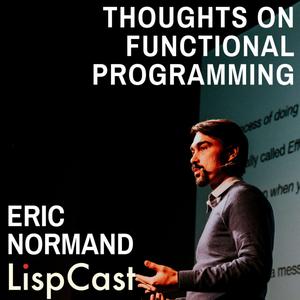
Thoughts on Functional Programming Podcast by Eric Normand
Eric Normand
An off-the-cuff stream of Functional Programming ideas, skills, patterns, and news from Functional Programming expert Eric Normand of LispCast..
- 12 minutes 24 secondsAll about the stratified design lens
In this episode, I introduce the stratified design lens, which talks about how and why we split things into layers.
25 September 2023, 3:15 pm - 10 minutes 36 secondsAll about the time lens
In this episode, I introduce the time lens, and I posit a law about representing time in complex domains.
19 September 2023, 4:02 pm - 18 minutes 28 secondsAll about the volatility lens
In this episode, I introduce the volatility lens, which seeks to help us write code that deals with a changing world.
11 September 2023, 5:00 am - 24 minutes 20 secondsAll about the architecture lens
In this episode, I introduce the architecture lens, its questions, and its goal of modeling architectural domains to manage complexity.
31 July 2023, 6:00 am - 15 minutes 18 secondsAll about the executable specification lens
In this episode, I introduce the executable specification lens, its questions, and its goal of getting to runnable, testable code as quickly as possible.
24 July 2023, 6:00 am - 13 minutes 44 secondsAll about the composition lens
In this episode, I introduce the composition lens, its questions, and its goal of figuring what's true when you perform multiple operations in a row.
10 July 2023, 5:00 am - 19 minutes 40 secondsAll about the operation lens
In this episode, I introduce the operation lens, its questions, and its goal of capturing the use cases of your software.
3 July 2023, 5:00 am - 23 minutes 18 secondsData lens
In this episode, I introduce the data lens, its questions, and its goals of capturing relationships among data values in data.
26 June 2023, 5:00 am - 19 minutes 54 secondsAll about the domain lens
In this episode, I introduce the domain lens, its questions, and its goal.
19 June 2023, 3:01 pm - 23 minutes 25 secondsHow does executable specifications compare with other modeling paradigms?
In this episode, I compare executable specifications to UML, DDD, and software design.
12 June 2023, 3:10 pm - 7 minutes 26 secondsWhat is the title of my new book?
I've found a better title for my book: Executable Specifications. Listen to find out why it's better.
5 June 2023, 5:00 am - More Episodes? Get the App
Your feedback is valuable to us. Should you encounter any bugs, glitches, lack of functionality or other problems, please email us on [email protected] or join Moon.FM Telegram Group where you can talk directly to the dev team who are happy to answer any queries.
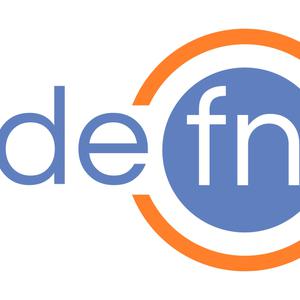 defn
defn
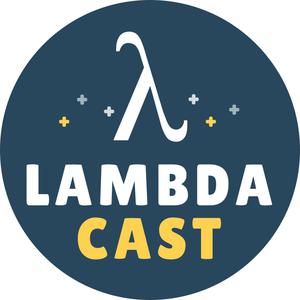 LambdaCast
LambdaCast
 The REPL
The REPL
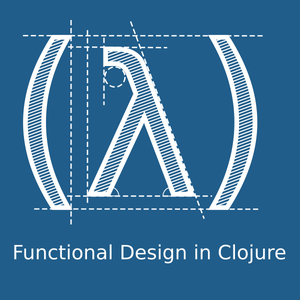 Functional Design in Clojure
Functional Design in Clojure
 Haskell Weekly
Haskell Weekly
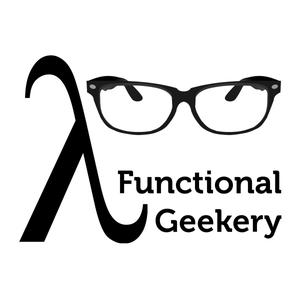 Functional Geekery
Functional Geekery